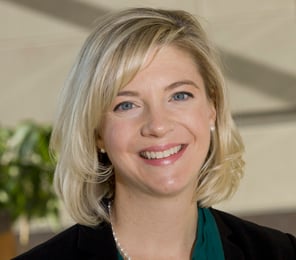
Jessica L. Griffin, PsyD
The emotional chaos caused by trauma can alter children’s lives, but remain hidden from the teachers, doctors, police officers and court officials who routinely have to make fateful decisions for them.
To recognize, address and alleviate child trauma where it exists, the Department of Psychiatry will use a $1.6 million federal grant from the Substance Abuse and Mental Health Services Administration (SAMHSA) National Child Traumatic Stress Network to provide specialized training to some 1,800 professionals working in Central and Western Massachusetts. Roughly 400 Worcester police officers are targeted for training, along with hundreds of teachers, school counselors and nurses in the school systems in Worcester and Hampden counties, pediatricians, probation officers, attorneys in Worcester and Hampden counties, and judges across the commonwealth.
The funding will establish the UMMS-based Child Trauma Training Center (CTTC) with the goal to increase trauma-sensitive care and streamline treatment for at-risk and underserved populations in Central and Western Massachusetts, including court-involved children and military families.
Jessica L. Griffin, PsyD, assistant professor of psychiatry and pediatrics, and principal investigator for the four-year project, said the plan is to create a centralized referral system that is not linked to any one provider agency, but operates as a network of agencies with known training in evidence-based trauma treatment, to increase access to specialists, decrease wait times and provide a referral and follow-up structure to keep children from falling through the cracks.
“Children don’t talk about it and people in general don’t talk about it,” says Dr. Griffin. “But trauma is very common. It’s one of those problems in our society that isn’t going away. We’re actually seeing more and more requests for training from clinicians and requests from families and child-serving professionals for trauma-specific treatments.”
According to Griffin, a number of initiatives have begun to take root in Massachusetts, each focused on raising awareness of child abuse and childhood trauma and targeted at meeting the needs of families who have experienced trauma and loss. She said the Child Trauma Training Center plans to collaborate with those other programs.
Griffin said she and her colleagues hope the center may ultimately help reduce the number of children in the court system and reach an estimated 1,800 professionals across the state, impacting more than 20,000 youth during the grant period. Mental health providers will also receive training.
Evidence-based treatment would be provided to approximately 900 children in the 6- to 18-year-old-age group who may have suffered from any form of trauma growing up, whether from sexual, physical or verbal abuse, or from natural disasters, terrorism or war. Treatment would also be available for children who may need grief counseling to cope with a family tragedy like the sudden or violent death of a close family member or friend.
According to SAMSHA, community surveys suggest that by their 16th birthday, 67 percent of American children have been exposed to at least one significant traumatic event.
“We know that children who experience trauma need effective treatment and that untreated trauma can have life-long consequences for a child’s development and health,” said Robert Pynoos, MD, co-director of the National Center for Child Traumatic Stress, which is based at UCLA’s Neuropsychiatric Institute and Duke University Medical Center.
Griffin, a clinical and forensic psychologist, said basic and advanced training in Trauma-Focused Cognitive-Behavioral Therapy (TF-CBT)—the most rigorously tested evidence-based treatment for trauma in children—will be provided to therapists.
Strategies to better engage families will be woven into products developed by the center, which is focusing specifically on providing culturally competent care—or effectively treating children from all backgrounds.
Military families in the center’s focus area are viewed as being at risk because the vast majority of them are in the Reserves or National Guard and don’t receive the more extensive benefits or support systems offered under full-time armed services careers, according to Griffin.
In addition to community partnerships, the center is collaborating with Baystate Medical Center in Springfield and the Family Continuity Program with offices in Worcester and Whitinsville to provide specialized training to their clinicians on trauma-focused treatment for underserved populations. Other provider agencies in Central Massachusetts will also be partnering with the center.
The center’s team includes Griffin; Melodie Wenz-Gross, PhD, assistant professor of psychiatry and co-principal investigator; co-investigators Heather Forkey, MD, assistant professor of pediatrics, and Lisa Fortuna, MD, assistant professor of psychiatry; and Thomas Grisso, PhD, professor of psychiatry and director of the Law and Psychiatry Program. Toni Irsfeld, MA, instructor in psychiatry, will serve as the project director, and Laurel Post, formerly of the Child & Family Forensic Center, as centralized referral coordinator.